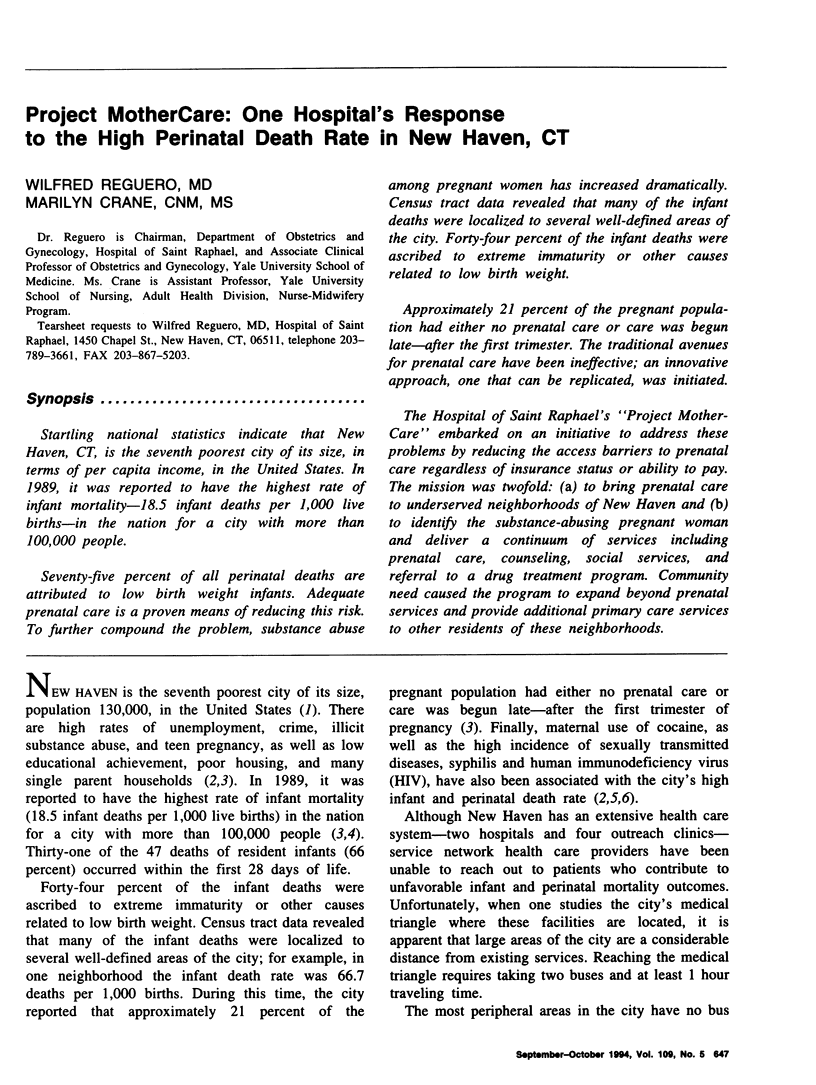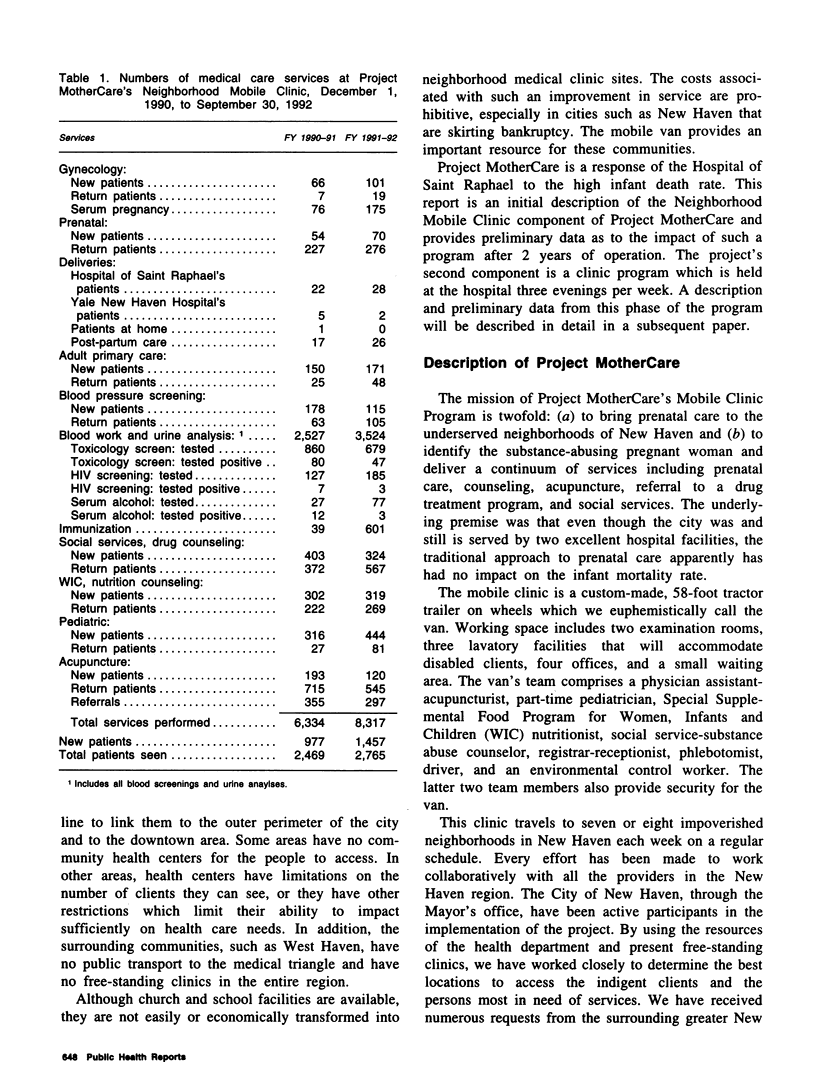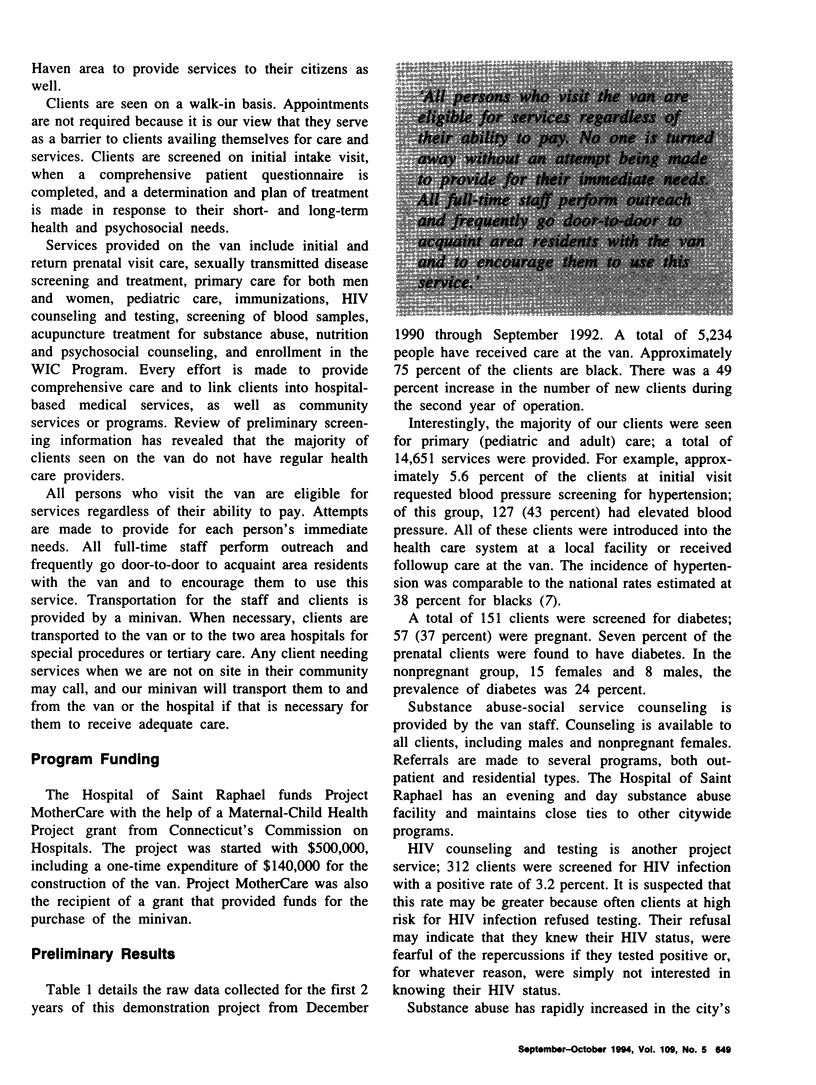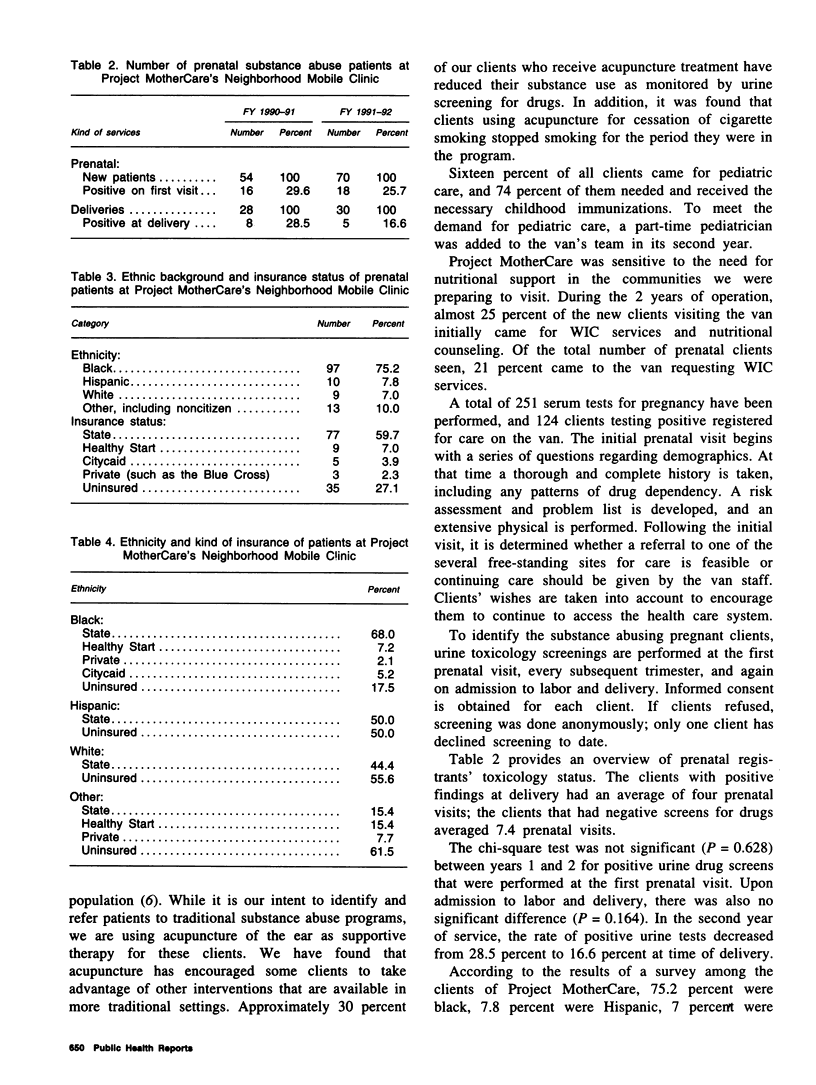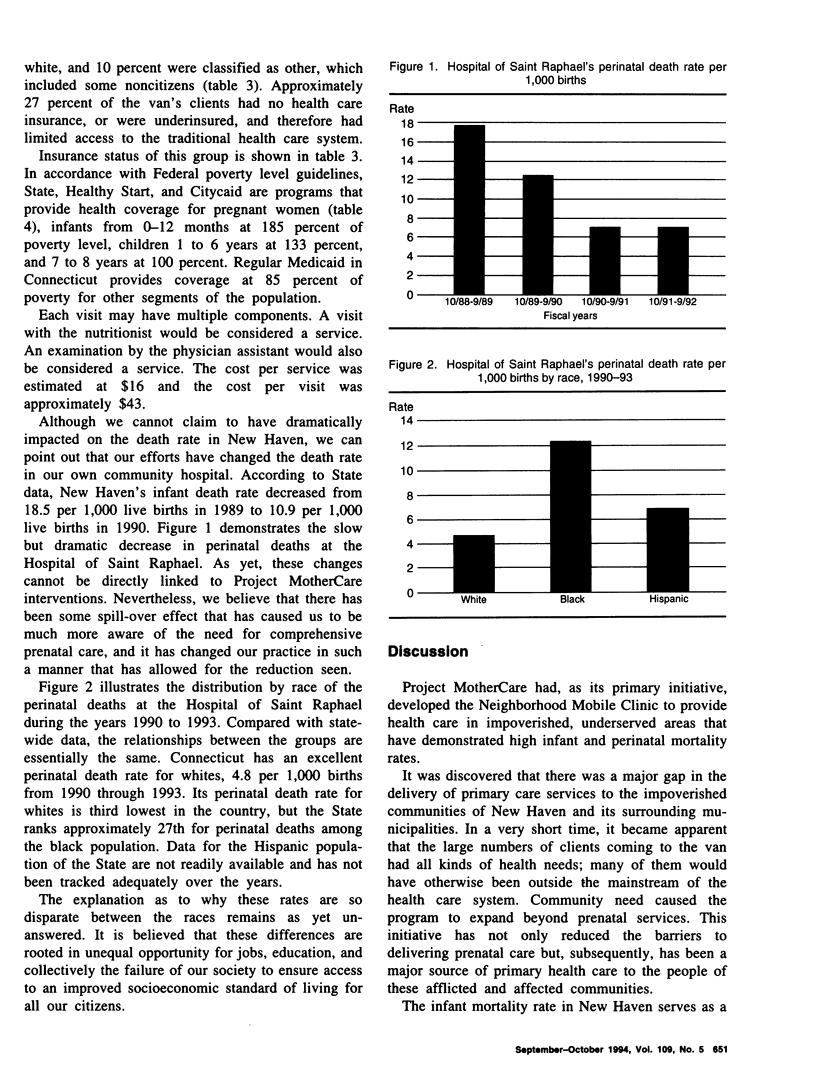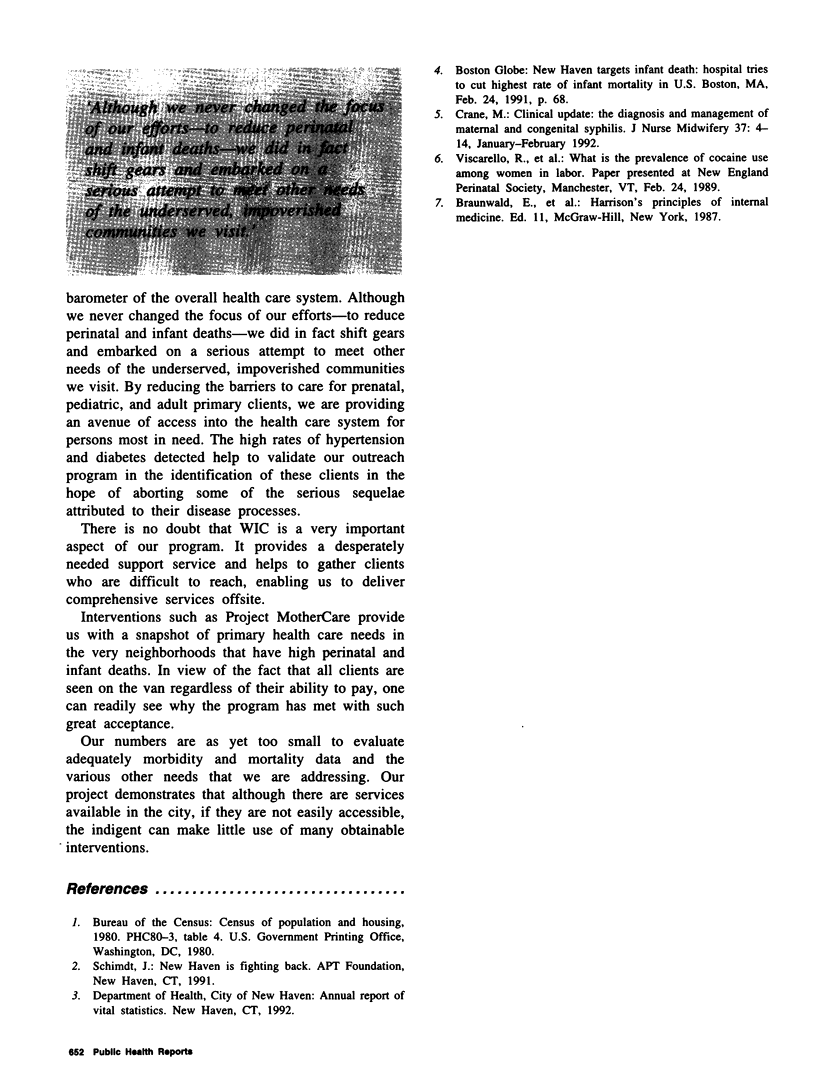Abstract
Starling national statistics indicate that New Haven, CT, is the seventh poorest city of its size, in terms of per capita income, in the United States. In 1989, it was reported to have the highest rate of infant mortality--18.5 infant deaths per 1,000 live birth--in the nation for a city with more than 100,000 people. Seventy-five percent of all perinatal deaths are attributed to low birth weight infants. Adequate prenatal care is a proven means of reducing this risk. To further compound the problem, substance abuse among pregnant women has increased dramatically. Census tract data revealed that many of the infant deaths were localized to several well-defined areas of the city. Forty-four percent of the infant deaths were ascribed to extreme immaturity or other causes related to low birth weight. Approximately 21 percent of the pregnant population had either no prenatal care or care was begun late--after the first trimester. The traditional avenues for prenatal care have been ineffective; an innovative approach, one that can be replicated, was initiated. The Hospital of Saint Raphael's "Project MotherCare" embarked on an initiative to address these problems by reducing the access barriers to prenatal care regardless of insurance status or ability to pay. The mission was twofold: (a) to bring prenatal care to underserved neighborhoods of New Haven and (b) to identify the substance-abusing pregnant woman and deliver a continuum of services including prenatal care, counseling, social services, and referral to a drug treatment program.(ABSTRACT TRUNCATED AT 250 WORDS)
Full text
PDF